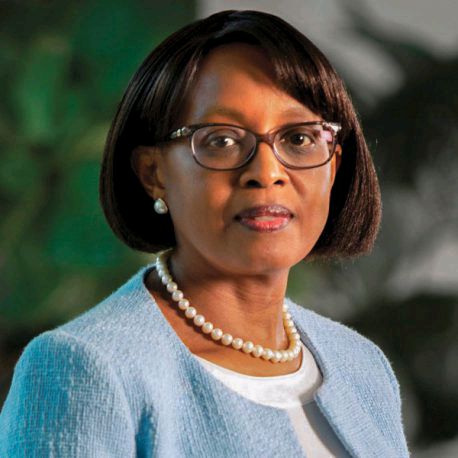The WHO Regional Director for Africa, Matshidiso Moeti, has raised concerns over the continent’s access to quality healthcare. In a statement released to commemorate the 2023 World Health Day, Ms Moeti said that 48 percent of Africa’s population still lacks access to quality healthcare, which roughly sums up to 672 million of the continent’s population.
According to her, this situation is due to weak health systems characterized by inadequate health infrastructure and poorly designed policies that limit financial barriers to health services. She also identified the shortage of qualified health workers, inadequate access to quality medicines, medical products, and innovative technologies as part of the causes of the health crisis on the continent.
Ms Moeti also pointed out that the COVID-19 pandemic, health emergencies, and worsening climate situations negatively impact the continent’s efforts to accelerate progress towards achieving Universal Health Coverage (UHC).
“Health emergencies, many of which are driven by climate change, often disrupt access to safe water and sanitation services, increasing the risk of waterborne and vector-borne diseases,” she said.
The official, however, stated that strengthening health systems based on strong Primary Health Care (PHC) is crucial to building back better and accelerating progress towards UHC and health security.
She noted that financial investment in PHC oriented by the building blocks of health systems, particularly a health workforce, health infrastructure, medicines, and health technologies, should be supported and guided by evidence.
“Ensuring additional investment to improve financial risk protection, addressing inequities, and building the resilience of national health systems in the post-COVID era is critical to our efforts to accelerate progress towards UHC in the African Region,” she said.
Ms Moeti also noted that most member states in the African region have integrated the attainment of UHC as a central goal of their national health strategies, but progress remains varied in translating this progress into equitable and quality services, as well as increasing financial protection for the population.
To mark the 2023 World Health Day, the WHO Regional Director called on everyone to work towards achieving UHC by 2030. She said UHC represents the aspiration that quality health services should be received by everyone when and where needed, without incurring financial hardships.
“Beyond health and wellbeing, UHC also contributes to social inclusion, gender equality, poverty eradication, economic growth, and human dignity.”
The theme of the 2023 World Health Day is “Health for All – Strengthening PHC to Build Resilient Systems.” The day also coincides with World Health Workers Week which runs from 7 to 11 April with the theme “Investing in the Health WorkForce.”
Ms Moeti expressed appreciation to governments, development partners, civil society, academia, the private sector, and communities for their commitment and contribution to achieving our collective effort of health for all.
“I am proud to have worked alongside all of you these past years. I look forward to a renewed collaboration and determination to make even more progress in the years to come,” she said.
The statement from Ms Moeti highlights the need for urgent action in improving healthcare access across Africa. While progress has been made, there is still a long way to go in achieving Universal Health Coverage and ensuring that everyone has access to quality healthcare services.



